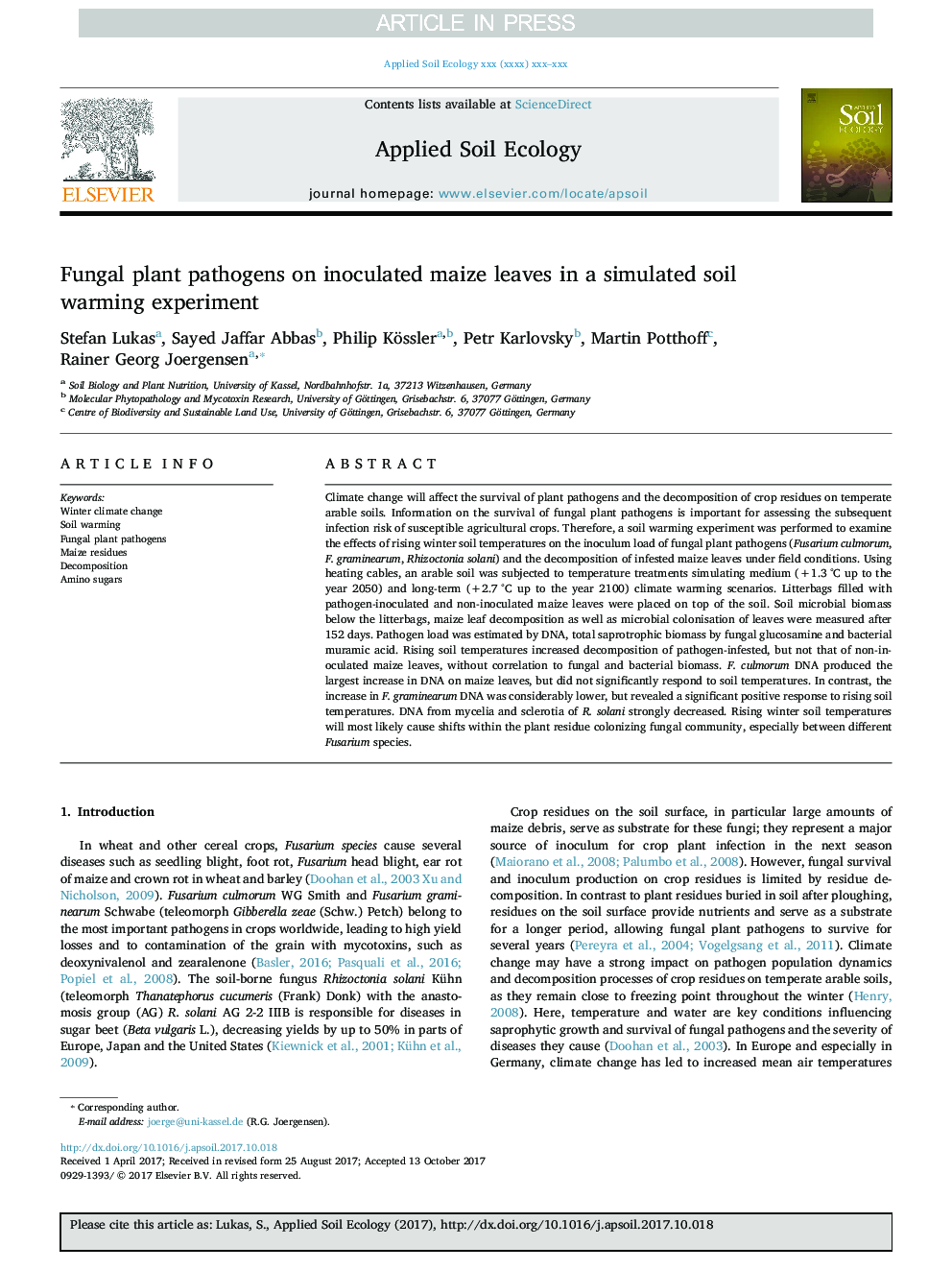| Article ID | Journal | Published Year | Pages | File Type |
|---|---|---|---|---|
| 8846761 | Applied Soil Ecology | 2018 | 8 Pages |
Abstract
Climate change will affect the survival of plant pathogens and the decomposition of crop residues on temperate arable soils. Information on the survival of fungal plant pathogens is important for assessing the subsequent infection risk of susceptible agricultural crops. Therefore, a soil warming experiment was performed to examine the effects of rising winter soil temperatures on the inoculum load of fungal plant pathogens (Fusarium culmorum, F. graminearum, Rhizoctonia solani) and the decomposition of infested maize leaves under field conditions. Using heating cables, an arable soil was subjected to temperature treatments simulating medium (+1.3 °C up to the year 2050) and long-term (+2.7 °C up to the year 2100) climate warming scenarios. Litterbags filled with pathogen-inoculated and non-inoculated maize leaves were placed on top of the soil. Soil microbial biomass below the litterbags, maize leaf decomposition as well as microbial colonisation of leaves were measured after 152 days. Pathogen load was estimated by DNA, total saprotrophic biomass by fungal glucosamine and bacterial muramic acid. Rising soil temperatures increased decomposition of pathogen-infested, but not that of non-inoculated maize leaves, without correlation to fungal and bacterial biomass. F. culmorum DNA produced the largest increase in DNA on maize leaves, but did not significantly respond to soil temperatures. In contrast, the increase in F. graminearum DNA was considerably lower, but revealed a significant positive response to rising soil temperatures. DNA from mycelia and sclerotia of R. solani strongly decreased. Rising winter soil temperatures will most likely cause shifts within the plant residue colonizing fungal community, especially between different Fusarium species.
Related Topics
Life Sciences
Agricultural and Biological Sciences
Ecology, Evolution, Behavior and Systematics
Authors
Stefan Lukas, Sayed Jaffar Abbas, Philip Kössler, Petr Karlovsky, Martin Potthoff, Rainer Georg Joergensen,
